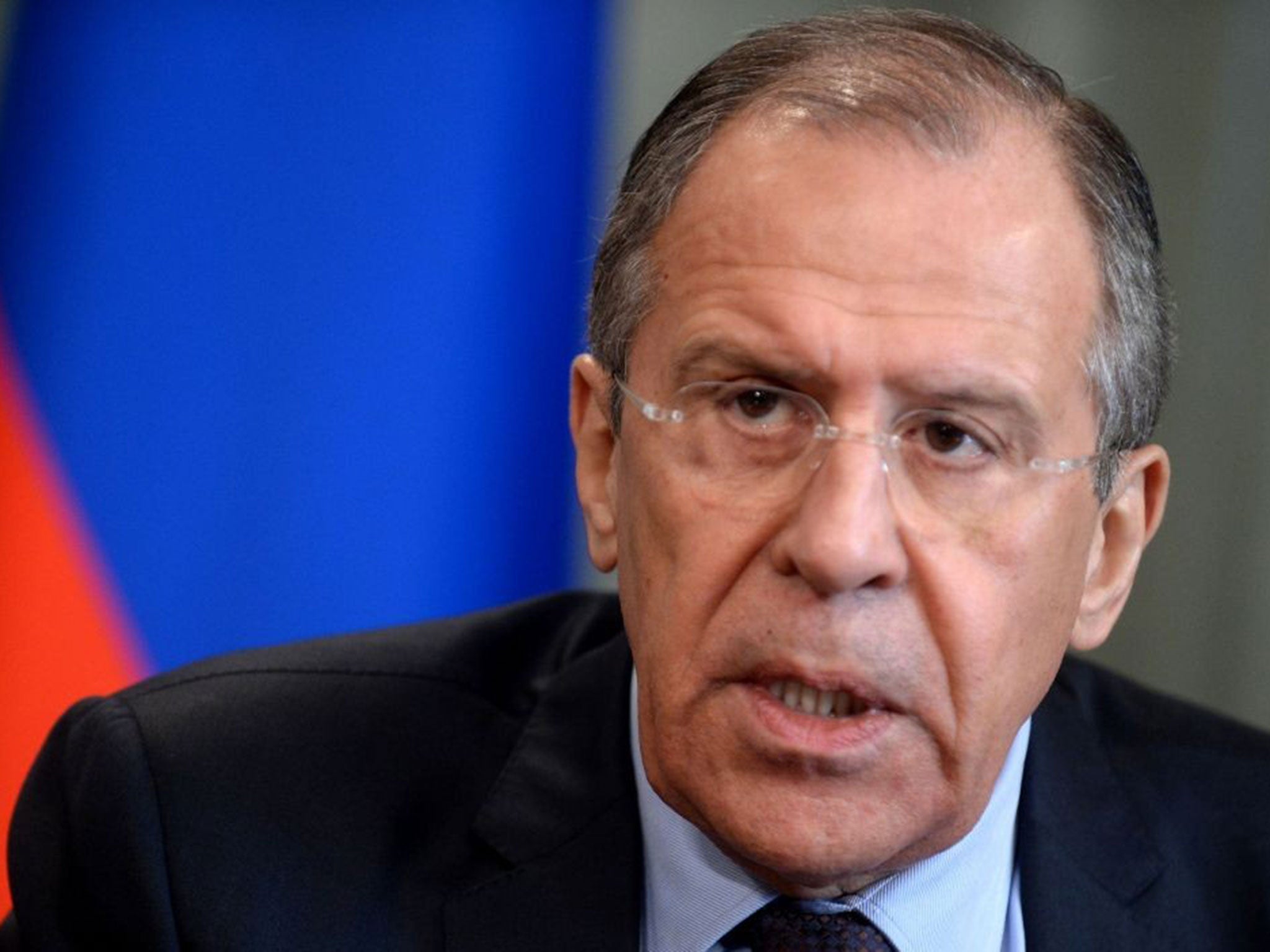Ukraine crisis: Russia offers conciliation by saying it will work with the West to ensure stability

Your support helps us to tell the story
From reproductive rights to climate change to Big Tech, The Independent is on the ground when the story is developing. Whether it's investigating the financials of Elon Musk's pro-Trump PAC or producing our latest documentary, 'The A Word', which shines a light on the American women fighting for reproductive rights, we know how important it is to parse out the facts from the messaging.
At such a critical moment in US history, we need reporters on the ground. Your donation allows us to keep sending journalists to speak to both sides of the story.
The Independent is trusted by Americans across the entire political spectrum. And unlike many other quality news outlets, we choose not to lock Americans out of our reporting and analysis with paywalls. We believe quality journalism should be available to everyone, paid for by those who can afford it.
Your support makes all the difference.After months of bickering over Ukraine’s political future, Russia appeared to be moving towards some common ground with the EU and Washington, with officials saying they were willing to work with the West to ensure stability.
The tug-of-war over Ukraine has strained ties between Brussels and Moscow, with fears they could plummet even further after the fall last week of President Viktor Yanukovych, which Russian officials blamed on European Union meddling.
A more conciliatory tone emerged, with a Russian government statement revealing that Foreign Minister Sergei Lavrov had discussed co-operation over Ukraine with US Secretary of State John Kerry. A Foreign Ministry spokesman also appeared to suggest a thaw in the diplomatic stand-off with Europe and the US.
“We are ready for co-operation, with the clear understanding that it will be honest and based on the ability not just to agree but to implement agreements that must take the interests of the entire Ukrainian people into account,” Alexander Lukashevich said.
Since November, when President Yanukovych abruptly abandoned a trade and political pact with the EU in favour of closer ties with Russia, officials from the bloc accused Moscow of exerting unacceptable economic and diplomatic pressure to ensure Ukraine’s loyalty.
The Kremlin, however, has argued that the interim government in Kiev is not legitimate, and does not represent the interests of the millions of Russian-speakers in the east of the country.
Speaking in London, the German Chancellor, Angela Merkel, appeared to address this concern when she urged the acting government to respect the wishes of all communities.
“Now is the time to sustain this territorial integrity, for the Ukrainian government to start working and for all parts of Ukraine to find themselves in this government,” she said at a joint press conference with David Cameron.
“We know that about 15 million people of Russian origin live in Ukraine and they have to find themselves in the work of the government as much as everyone else,” she said.
Nato’s Secretary-General, however, had a more pointed warning for Russia, saying that it should “not take any action that can escalate tension or create misunderstanding”. The comment from Anders Fogh Rasmussen came after an armed group seized a government building in Crimea, where many of Ukraine’s Russian-speaking population live.
The most pressing concern is the financial situation, with the interim President, Oleksandr Turchinov, suggesting the country may need as much as $35bn to row back from the brink of bankruptcy.
Taking the top jobs: Power in Ukraine
Top figures in Ukraine’s three-month protest are taking up important posts in the new cabinet, underscoring the powerful and unpredictable force of the revolt. Here are the main players:
Arseniy Yatsenyuk (Prime Minister)
The 39-year-old parliamentary leader of Yulia Tymoshenko’s Fatherland party was its most prominent figure during the protests. A former lawyer, he was Foreign Minister and governor of the central bank in previous administrations.
Oleksander Turchynov (Acting President)
The Baptist pastor was Ms Tymoshenko’s right-hand man. He is widely viewed as a consensus candidate.
Dmytro Bulatov (Youth Minister)
A month ago, kidnappers pulled him from anti-government protests, beat him and cut off a piece of his ear. His kidnapping shocked Ukrainians and added further energy to the protests.
Yevhen Nishchuk (Culture Minister)
The actor was one of the most recognisable faces and voices of the protest, introducing opposition speakers on a giant stage on Kiev’s Independence Square, and singing the national anthem.
Join our commenting forum
Join thought-provoking conversations, follow other Independent readers and see their replies
Comments